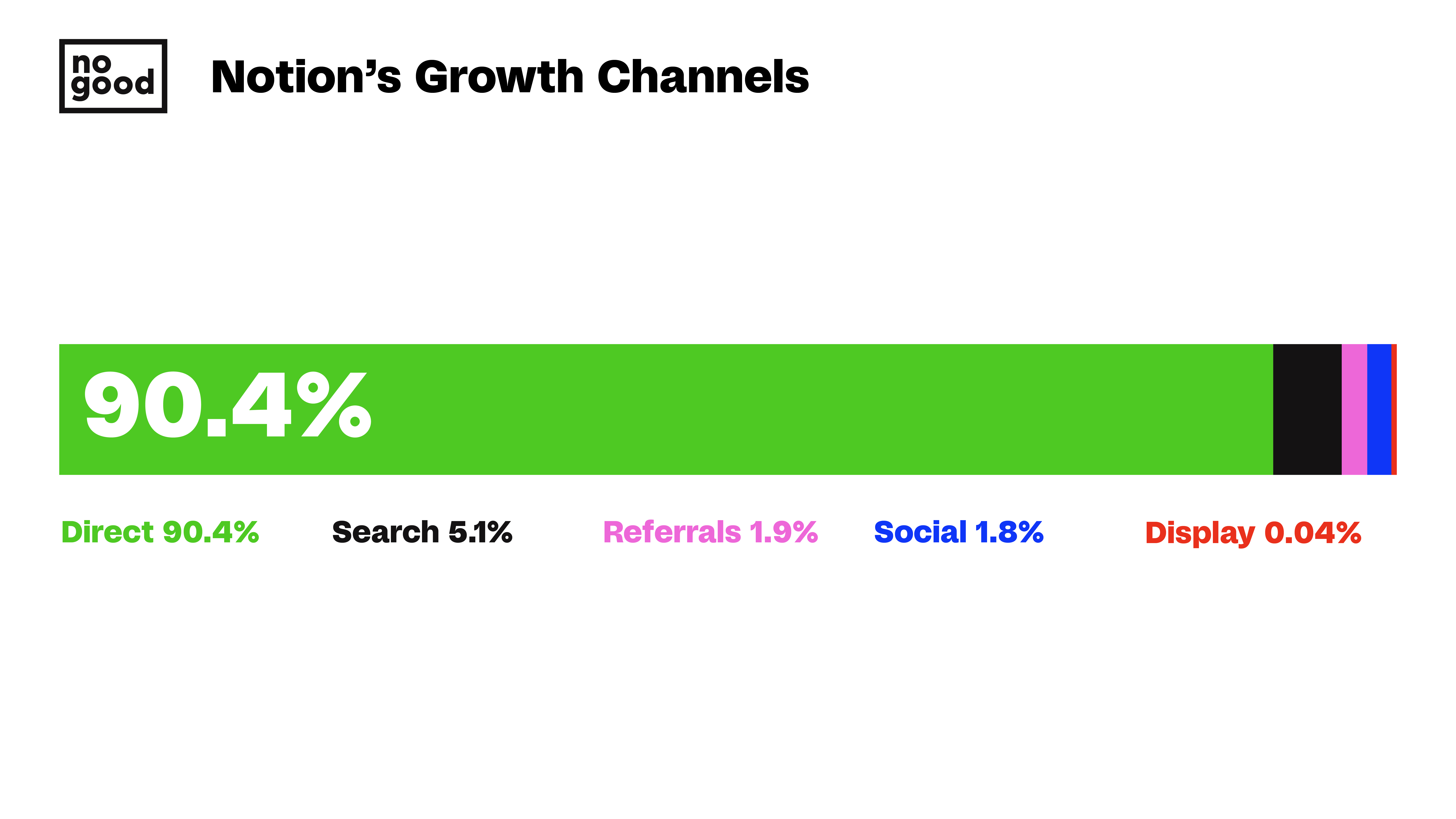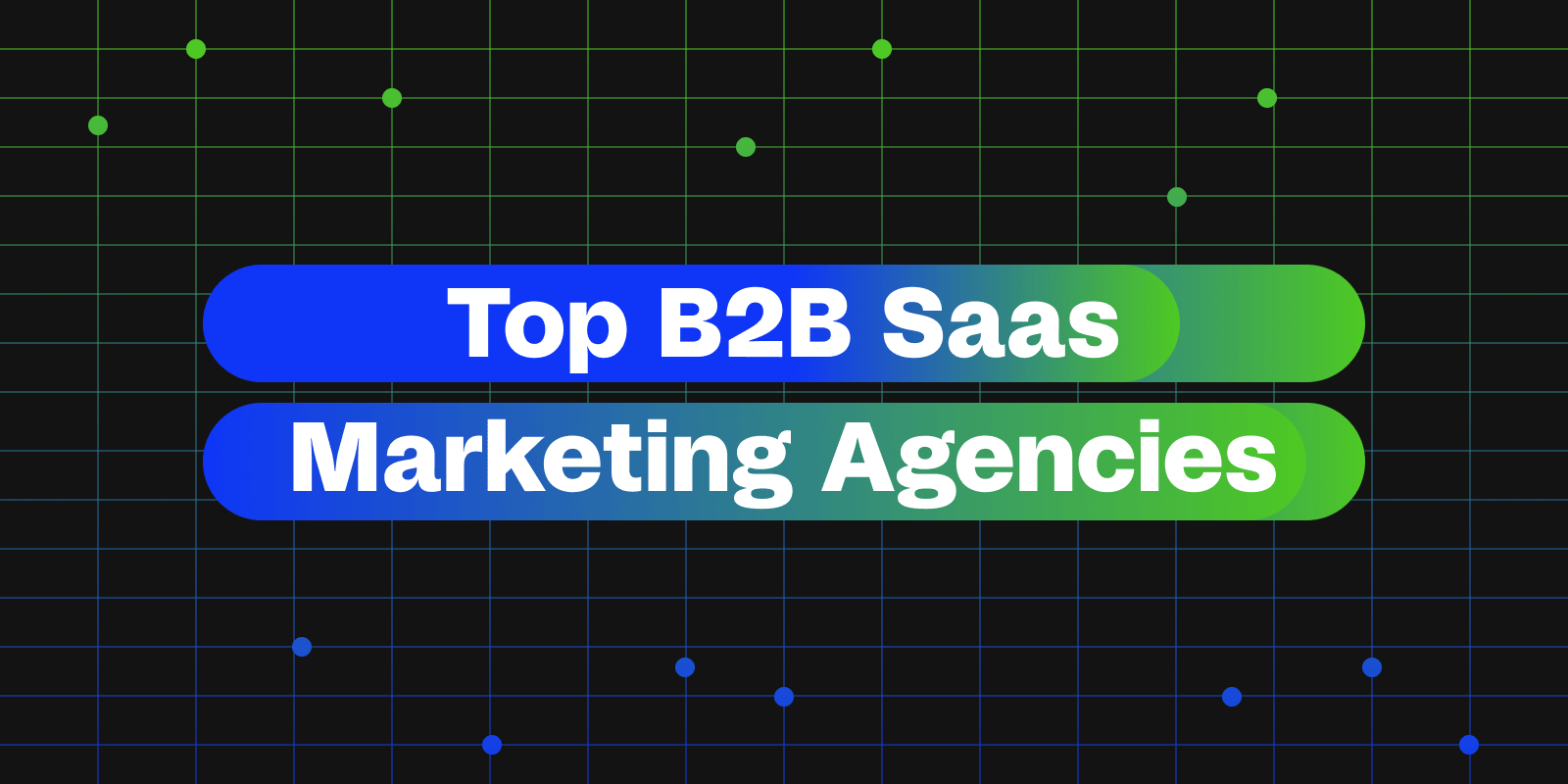In a world where collaboration is key, (especially in 2022) there is a whole suite of platforms to keep you and your team working together. These platforms may include G-Suite, Slack, Asana, or even Salesforce. But one platform sets itself apart by being the self-proclaimed “all-in-one workspace.” Notion is a no-code software that allows teams to build spreadsheets, manage workflows, and share documents elegantly and flexibly – making it great for small and large businesses alike.
Not only is Notion a NoGood team favorite, but it’s a great example of a true growth story. The product itself is not designed just for teams like us – it’s a self-service product, built as you go, and ultimately its growth has largely been driven by organic adoption through online communities. The drag-and-drop accessibility along with seamless transition has made it a no-brainer tool and a product users love. So, how did they do it? A little strategy, a great product, and of course, knowing how to grow.
What Is Notion?
Since its re-launch in 2018, Notion has been the growing platform for individuals and teams alike with over 20 million active users (up from just one million reported in 2019). It has been used by large corporations as well as smaller, growing internal teams across the globe, 80% being outside the US. Based on their massive success, Notion has done something different – they have simply provided a truly unique product that can make your work life easier and is able to integrate with other platforms for a seamless user experience.
“Community is a force that should power every stage of the funnel.”
-Olivia Nottebohm, CRO of Notion
Notion’s growth strategy is different for many reasons. Their driving factor of growth has been how they grow horizontally by marketing to a large base of people, segmenting their audiences, and harnessing the power of community. Their use of ambassadors, called Notion Pros, the Notion community, and a very tailored brand voice has made their $10 billion value an admirable feat.
While some believe growth happens due to setting goals and growing teams, Notion thinks otherwise. Their small and agile team has some key elements that have helped drive them to these huge goals including an in-house designer, their storytelling ability, and alignment with their founder’s voice.
“We do have a small team and I think it’s not necessarily about efficiency as it is about being clever. We have a designer and developer on the team. Which is an unusual thing to have someone with that skill set purely allocated to marketing.” Camille Ricketts, Notion’s Head of Marketing, attributes it as one of the most unique and important things that have allowed them to test, grow, and develop.
What Makes Notion So Good?
Notion’s strategic design and organic-based growth are unique for platforms that are both B2B and B2C. So how exactly did Notion jump-start their growth, and what trends are helping their continued rise?
1. Flexibility – Think of this as the widgets on the home screen of your smartphone. Customization and usability are key. Notion uses the knowledge you give it (say a small business with under 30 employees) and sets you up with specific and useful templates. If these templates are not specific enough, users can create their own building blocks and search from Notion’s other pre-designed templates.
In a time that’s focused on support and changing environments, the tools themselves are adaptable to organizing your workspace and lifestyle. Notion’s creation of this ultimate flexibility makes it a product people love from all backgrounds and lifestyles.
2. Community – A lot of Notion’s traffic and conversions come directly from organic search, proving that people love their products and have feedback on them. In fact, Notion began building its community from a few Twitter enthusiasts, according to CRO Olivia Nottebohm, and brought on marketing employee no. two by finding his Notion fan blog. Since then, Notion has created voluntary positions in Notion Ambassadors. These ambassadors are passionate enthusiasts that teach and share Notion within their own communities. Benefits of the program include early product releases, their private Slack group, and special sessions with Notion team members. This may be one of the most unique and interesting ways Notion has leveraged its customers and their LTV. By using their own customers as brand advocates, Notion encourages user-to-user interaction and engagement to promote their product which in turn nurtures fully developed leads that are ready to convert and enter the continued growth loop. In addition to a go-to-market strategy based on an adaptable product, Notion’s community-led growth strategy allowed them to quickly scale worldwide through their ambassador and consultant programs as well as their online communities found on Reddit, Facebook, Discord, and more.
3. Active Replacement – Almost everyone in the world uses some form of organization and management tool for their life or work. So why switch things up? Competitors like Evernote, Wiki, and Airtable all provide similar services, but many users operate on multiple platforms to manage everything they need. Notion’s website, set-up feature, and templates show you just what tools you can remove from your life. Each page and template will show you just how it works and how you can seamlessly stop using another tool. The explanation is transparent, concise, and easy to use.
4. Clean Design – Notion’s design is clean, simple, and an almost perfect blank slate. It’s designed for you to build as you see fit. In addition to the hundreds of templates already at your disposal, Notion users can create templates and add to the ever-growing community. Not only do these templates assist other users in better organizing their work, but can be monetized, too! This feedback loop is extremely important in understanding how the company has been able to leverage its creators and customers. The users are truly shaping the platform which allows Notion to see in real-time how to innovate and adapt their platform to suit their users’ needs.
5. Personalization – Collaboration tools are often designed to be a catch-all, but Notion takes it one step further. Personalization allows the tool to appeal to a larger horizontal audience and offers users a customized experience. When setting up a personal or company Notion workspace, users are taken through a 2-minute personality and use assessment before automatically setting up a data-driven workspace customized to them. This intuitive customization process offers users a sense of personalization and adaptivity that doesn’t involve code, converting or recreating files, or spending hours in customization settings. Not only does this make the user feel a part of the process, but it encourages them to have the freedom to create what works for them, not the other way around. These customized workspaces take the pain out of potential customer struggles and show them the value prop from the get-go.
Breaking Down Notion’s Strategy
One of the most unique things about Notion’s growth is the overwhelming majority comes from organic search followed by social media.

Notion’s growth, in comparison to its competitors, has not been the result of large marketing budgets utilizing paid social, search, or display advertising but rather through its value to the community it fosters. Over 90% of its traffic is driven through direct search with paid search coming in at a little over 5%.
Following the Product Hunt launch of Notion 2.0 in 2018, Notion saw a huge amount of traffic and an uptick in users. The Notion 2.0 Product Hunt launch garnered over 6000 upvotes and is one of their all-time top posts on their site. The widespread support and the Reddit community (45K strong) rallied behind all the features Notion has to offer and its ever-increasing ability to build community and a workspace for everyone.
Traditionally we see SaaS companies dump money into their paid social channels. But when looking at Notion’s social media and advertising channels, we haven’t seen a whole lot of action. They simply used the traction they got from their community that already loves their product.
From the get-go, it was clear Notion focused on their branding principles to develop an identity unique in the cluttered space. There are two specific trends they focused on:
- Creating something that allowed people to work better
- Creating a product that allows buyers to respond with good design and great stories
These basic principles are what created the flexibility and love for the product and are what ultimately feeds their entire growth loop.
Much of Notion’s success can be credited to its vibrant community of users and enthusiasts. Not only are you immediately supported on the platform, but their additional member platforms and opportunities allow users to enhance their experience with the product that gets better and more intuitive as they use it. Through these positive experiences, it creates an army of brand advocates that use their experiences to funnel new users into the growth loop. Notion’s focus on community-led growth supported their unique product that is entirely user-driven and enables them to keep their full-time team (somewhat) small while users self-sustain their community forums, customer support, video tutorials, and more.
Another major facet of Notion’s brand is its clean and concise brand voice. Similar to the founder and CEO, Ivan Zhao, the company itself gives you a feeling of cool, calm, and collected — the perfect blend you’d expect from what started as a lifestyle management tool. The voice and simplicity of the founder are carried from the website landing page to template headings. Notion tells you what it is, how it works, and how it benefits you – taking the pain and processing away.
Lastly, many SaaS companies during the start-up phase are focused on their numbers and specifically churn, conversions, and sign-ups. But Notion took a more strategic approach in addressing this concern – they developed their content as their community provided them feedback. They removed the pressure to grow to a certain number and did what any growth-stage company should do – they focused on the quality of their content and making it a platform a smaller audience loved. By shifting their focus on quality rather than quantity, the numbers followed and even surpassed their goals.
Lessons Learned From Notion:
“Having a community that feels community-owned and run has allowed the conversation to be more robust and candid. Our biggest critics are the ones who love the product the most.” – Camille Rickets, Head of Marketing at Notion
Throughout the last few years, we have seen Notion grow to new heights and achieve something not many SaaS companies do as well – create a product people love to use and love to talk about. So what are the key takeaways we can learn from Notion’s growth strategy?
- Branding and Unique Selling Points – What makes your company better than the competitors? How do you communicate that? Notion’s brand is transparent and simple – they’re giving you the tool that makes you leave every other tool. They want to give you something simple to make your life simple and that is the core of their product.
- Recognizing and Utilizing the User – Understanding what people like and dislike about your product are the best ways to develop a growing product. Hearing and seeing your users’ pain points and addressing them from the beginning has been key to Notion’s overarching success. Their use-case quiz and personalization is something everyone SaaS company should be looking into adopting.
- Harnessing the Power of Community – The development of a Reddit community and Notion Pros allows Notion to leverage their market at a scalable and efficient level. Their real-time feedback and supporting community have driven their organic traffic and their product improvements.
- A Small and Agile Team – the Notion marketing team is no average team – they developed their skillset and identified how much community, content, and continuous development means to their growth and work within those key areas. These strengths are relevant in their overall strategy and their growth.
- Cleverness Over Efficiency – One thing that stood out from Notion was their emphasis on quality over quantity. While other companies were focused on hitting numbers, they took a different approach and focused on how to be clever and clear. The content reaction has been incredibly intentional, while their branding has been clever and community-forward, differentiating them from their competitors.
Overall, Notion has an incredible story about growth and the ever-emerging tools we see in the SaaS collaboration space. They have incorporated strategy, community, and convenience to build a product that does it better than its competitors. Notion’s strategy is unique in growing organically and using its devoted community of users to provide valuable feedback, produce templates, provide support, and assist in product expansion worldwide.
If you are looking for a team of experts that can help you crush growth, we’re here to help.






